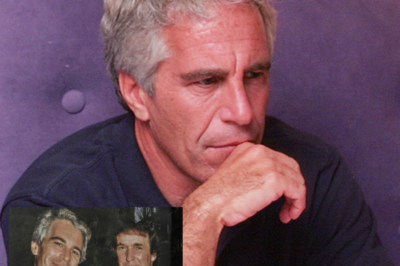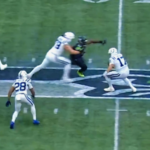Carrie Underwood Reflects on Ending Vegas Residency and One ‘Pretty Late Night’ at the Club
On Wednesday, the country star’s Las Vegas swan song will begin as she kicks off the final leg of her Resorts World residency
:max_bytes(150000):strip_icc():focal(574x0:576x2):format(webp)/carrie-underwood-1-032425-6f7fb5bed1504e31b0e6044ab3eddad8.jpg)
All good things must come to an end.
On Wednesday, Carrie Underwood‘s Las Vegas swan song will begin as she kicks off the final leg of her Resorts World residency, which began in December 2021, making her the first artist to play at Resorts World Theatre, something she calls a “special honor.”
Once the American Idol judge takes the stage for the last time on April 12, she will have performed her Reflection residency 72 times.
“I have always loved touring, but having the chance to play for an extended period of time in one place has really been satisfying — I love that we get to do this show for people who have come to Las Vegas from all over the world,” she told PEOPLE exclusively.
The show has been a hit from its first note, too. For over three years, Reflection has embodied all things Vegas, as it featured sequins, pyro, mirrors, fashion and huge set pieces that may not ever be seen on tour.
“We always like to bring big production values to our show, but Reflection really allowed us to take that to a new level,” the eight-time Grammy winner, 42, said. “We have some amazing set pieces that we could never pack onto trucks and move from city to city every night, and it’s been really fun adding more elements like the aerialists and dancers, which we don’t usually have in the show.”
:max_bytes(150000):strip_icc():focal(753x161:755x163):format(webp)/Carrie-Underwood-looks-091823-1-478f344536af44239ea2e15b0bd972d0.jpg)
In Reflection, Underwood sets fire to a Jeep during “Before He Cheats,” and she hovers above the stage on a platform while getting drenched during “Something In the Water.” “We really had to bring the spectacle and the drama — it’s Vegas, baby!” she said.
Undoubtedly crowd pleasers, Underwood’s favorite moment of the show comes during “All-American Girl” when she brings a bachelorette up on stage to duet. The moment, she said, “reflects back on a time early in my career when this song came out when we used to have a little girl come up on stage and sing with me each night.”
“It’s so fun to be part of someone’s special night,” Underwood continued, “but my favorite was when my mom came to see the show, and I brought her out to sing it with me. She brought the house down!”
:max_bytes(150000):strip_icc():focal(700x140:702x142):format(webp)/carrie-underwood-reflection-010125-03-15171e0b199d44cdb207f47c2f93e428.jpg)
While the country superstar leaned into Las Vegas on stage, she mainly stayed low-key off stage, typically renting a home in town and avoiding the city’s trappings — with the exception of one holiday weekend involving rapper Ludacris, who was performing at a nearby nightclub. That evening marked the “most Vegas” thing she did during her residency run.
“After my show, a bunch of us, including a lot of my band and team, went out to see him perform there that night as he went on around 1 a.m.,” she recalled. “It was a pretty late night, and we all had an amazing time!”
Show dates for Underwood’s final Vegas show are as follows:
- March 26, March 28, March 29
- April 2, April 4, April 5, April 9, April 11, April 12
News
Inspired by David Beckham’s $1 billion win, Harry Styles decided to sue counterfeiters.
Harry Styles launches lawsuit inspired by David Beckham’s $1billion victory One Direction singer Harry Styles files case against counterfeiters One…
Charley Hull has opened up for the first time about her painful divorce from her ex-husband, MMA fighter John “Ozzie” Smith.
Charley Hull Opens Up on Traumatic Divorce from Ex-Husband for the First Time Ever At just 23, Charley Hull surprised many when…
Firerose recently shared a video exposing Billy Ray Cyrus’s ‘crimes’ in their relationship – and that video was anything but cute.
Country singer’s ex-wife alleges abuse in scathing video: ‘Control, isolation, rage, manipulation’ NASHVILLE, TENNESSEE – AUGUST 23: (L-R) FIREROSE and…
Billy Ray Cyrus demands thousands from woman claiming to be Miley Cyrus’ biological mom after she files bombshell lawsuit
The star had previously been on the receiving end of an unusual lawsuit relating to Miley Cyrus Billy Ray Cyrus…
“Not Walking Down the Aisle,” Riley Green and Ella Langley Join Country Music’s Elite Club.
Riley Green and Ella Langley Joins the Ranks of a Country Music Power Couple in the Record Books In June…
The Democratic Party released new photos of pedophile billionaire Epstein: Including President Trump and former President Clinton.
The Democratic Party releases new photos of pedophile billionaire Epstein. Democratic lawmakers have released new documents about pedophile billionaire Epstein,…
End of content
No more pages to load












